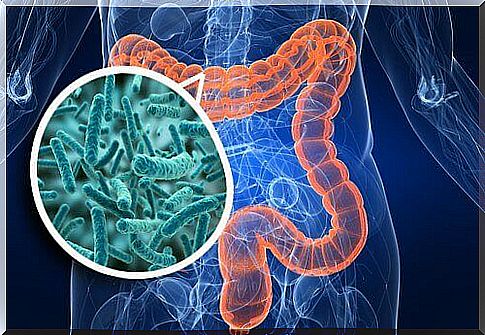Can Intestinal Bacteria Affect Emotions?

Mens sana in corpore sano . Over time, science has confirmed this, namely that only a healthy body can accommodate a healthy mind. Among the numerous evidence in favor of this, we must mention the one that has perhaps received the most attention in recent years: the relationship between gut bacteria and the brain and emotions.
The study of intestinal bacteria has become one of the major areas of research in recent years and this surprising discovery, in fact, has only recently occurred.
The close relationship between the gut and the brain
We have all experienced the familiar feeling of “butterflies in the stomach” at least once in our lives. Recent studies show that there is some truth to this metaphor. Since the beginning of the 21st century, many scientists have focused on studying the relationship between the bacteria that populate our gut and our mental health.
This is certainly not an unknown issue. By the early twentieth century, doctors and scientists had already produced an extensive literature on the effects of the colon – and in particular the harmful bacteria that populate it – on fatigue, depression and neurosis.

Although the first studies were rejected for allegedly unscientific, in the last 15 years scientists have returned to the subject by reexamining the relationship between the gut and the brain. Thanks to research, the idea of a “two-way” relationship between the two organs is gaining ground.
The brain affects immune and gastrointestinal functions, which can alter the composition of the gut microbiota. In turn, gut bacteria produce neuroactive compounds, neurotransmitters and other metabolites that act on the brain.
Following experiments carried out on guinea pigs, it was found that some of these compounds affect the permeability of the blood-brain barrier, which prevents harmful substances from passing from the blood to the brain.
Intestinal bacteria and mood
For some years now, the scientific community has begun to specifically study the effect of intestinal bacteria on emotions. Today, for example, intestinal microorganisms are known to release a large number of chemicals, including some used by neurons to communicate and regulate moods: dopamine, serotonin and gamma-aminobutyric acid (GABA). These substances, in turn, act on intestinal disorders, which coincide with high levels of anxiety and stress.
Furthermore, we have always known that much of the transmission of neurochemicals originates in the intestine: these signals regulate appetite, the feeling of satiety and digestion. It is only recently that research has taken into consideration the role that bacteria play in the production of these substances, which are so important to the whole organism.
The role of the brain-gut-microbiota relationship
UCLA (University of California, Los Angeles) researchers recently discovered that the gut microbiota interacts with brain regions associated with an individual’s mood and behavior. Similar research was carried out in the past on animals: it is therefore the first time that behavioral and neurobiological differences have been associated with the composition of the microbiota in healthy humans.

This study reaffirms the exchange relationship between the brain-gut-microbiota, a relationship that plays a fundamental role for our health and our behavior. Past studies already stated that the microbiota, the gut community of microorganisms, can affect behavior and emotions.
The question arises: is it the gut that affects the brain or is it the brain that affects the gut? To state with certainty one or the other is still impossible. As the researchers warn, it is difficult to draw conclusions that go beyond reasserting the importance of the relationship between the brain and the gut, as this is a field of study that is still little known and is currently being tested.
The importance of intestinal bacteria
As we have said, studies on the behavior of intestinal bacteria and the influence they exert on brain function are still ongoing. There is still a lot to discover and verify. For now, it is known with certainty that:
- The intestinal microbiota is a large colony of microorganisms that are very important for maintaining healthy metabolism and brain functions;
- The communication pathways between the intestine and the brain make use of connections between neurons;
- The gut microbiota is important for development and can affect the network of circuits that generate stress;
- Probiotics, or “good bacteria”, have a positive impact on an individual’s mood.
There is no doubt about the importance of the microbiota as a regulator of the health and emotions of individuals. The microbiota takes part in the complex and multifaceted communication mechanism necessary to ensure a healthy balance for the brain. So, while waiting for further progress in this field, we accept to take care of our body, paying attention to the messages it sends us.









